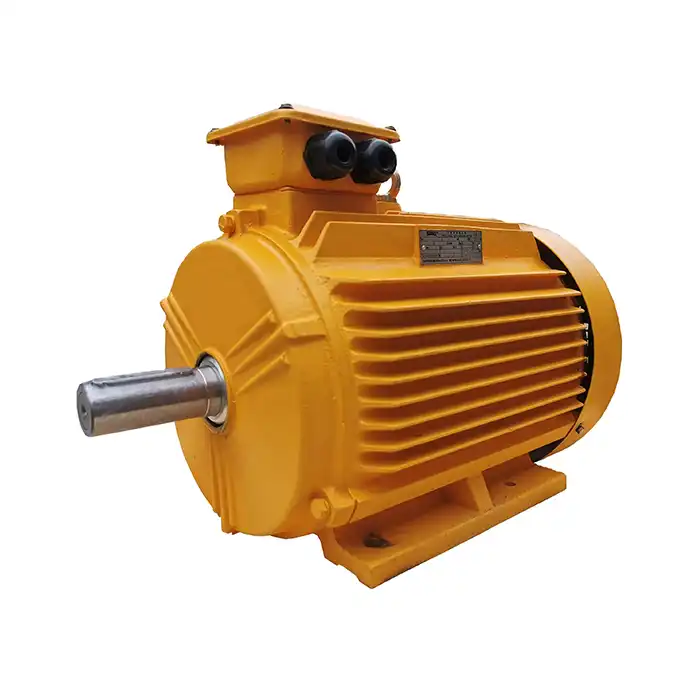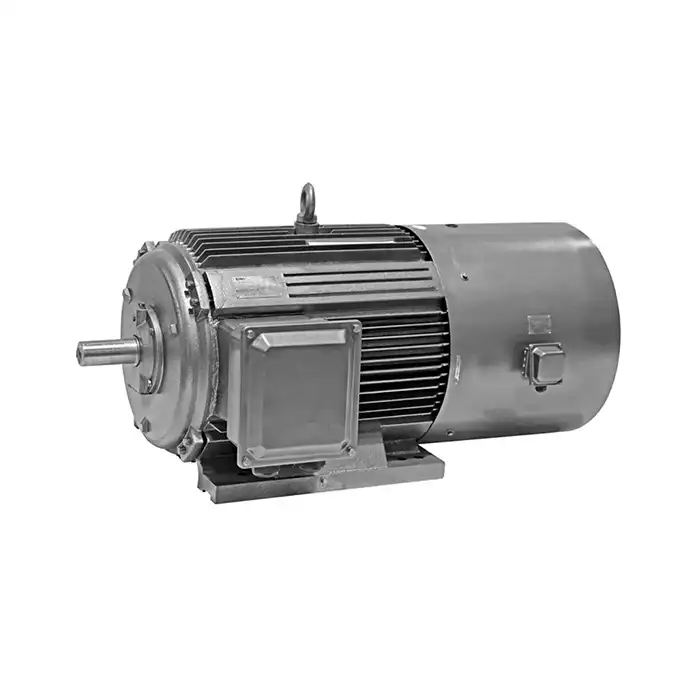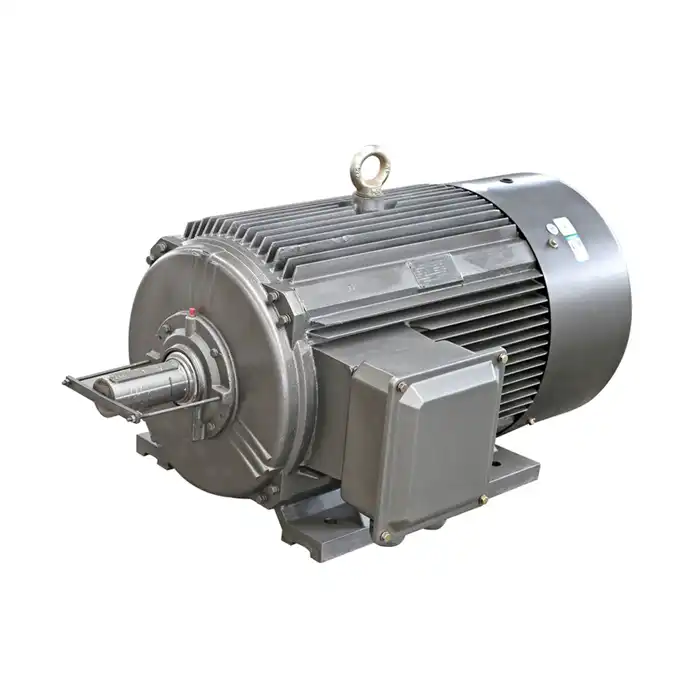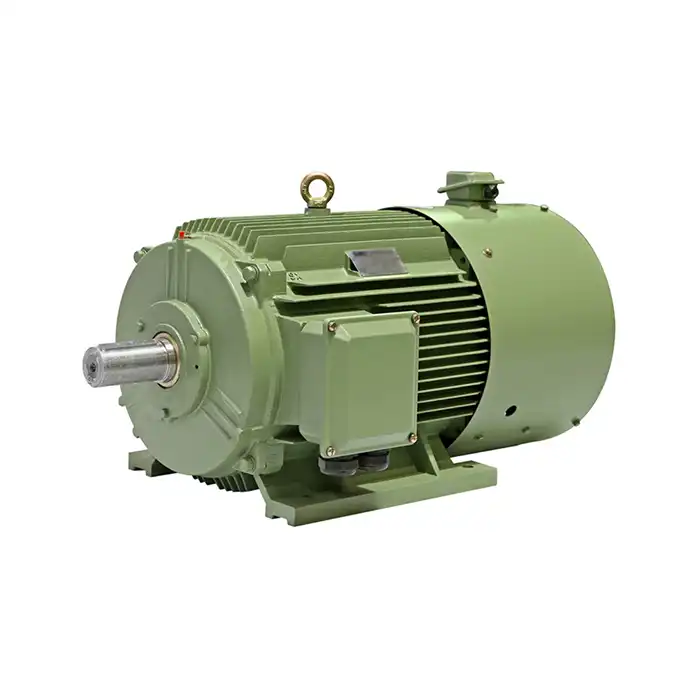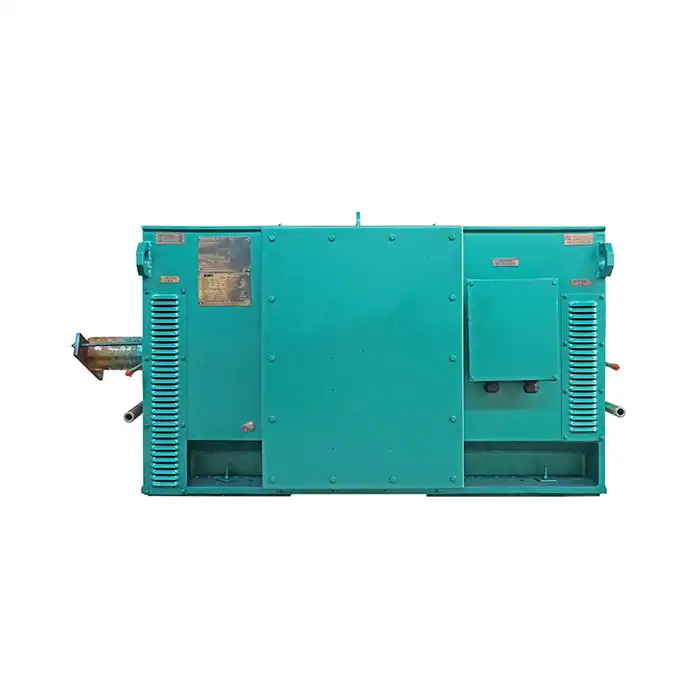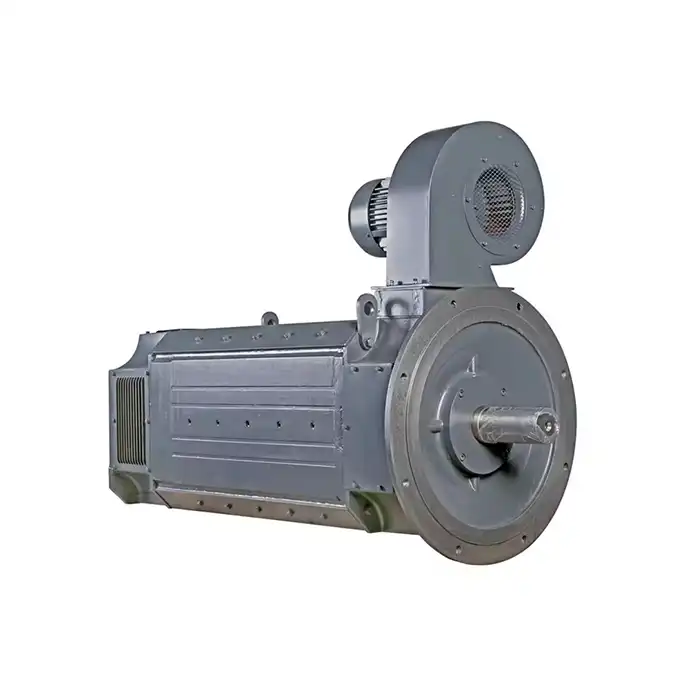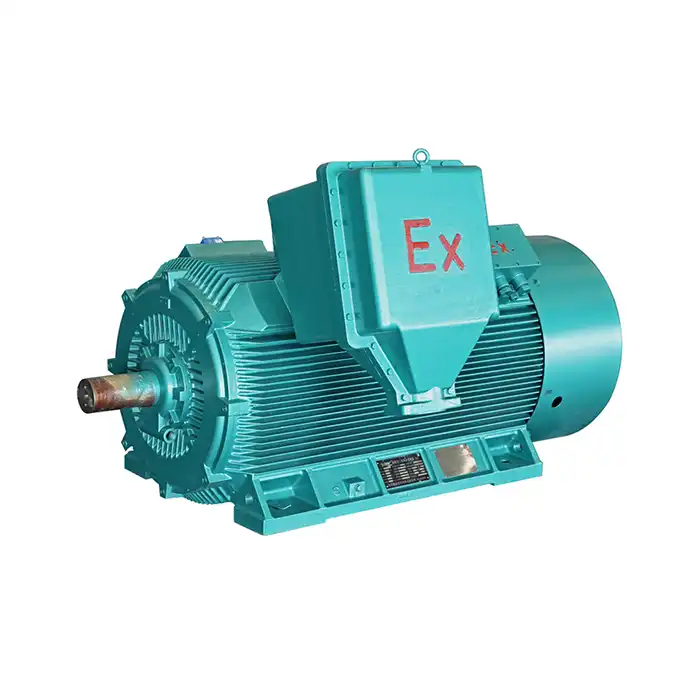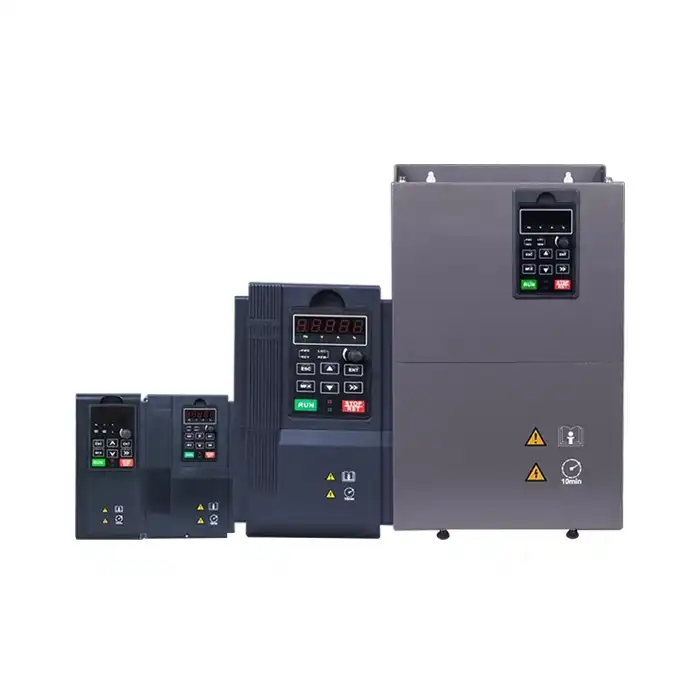What are the environmental considerations for inverter duty induction motors?
Inverter duty induction motors have become increasingly important in various industries due to their efficiency and adaptability. As environmental concerns continue to grow, it's crucial to understand the ecological impact of these motors. This article explores the key environmental considerations for inverter duty induction motors, focusing on energy efficiency, recyclability, and noise pollution.
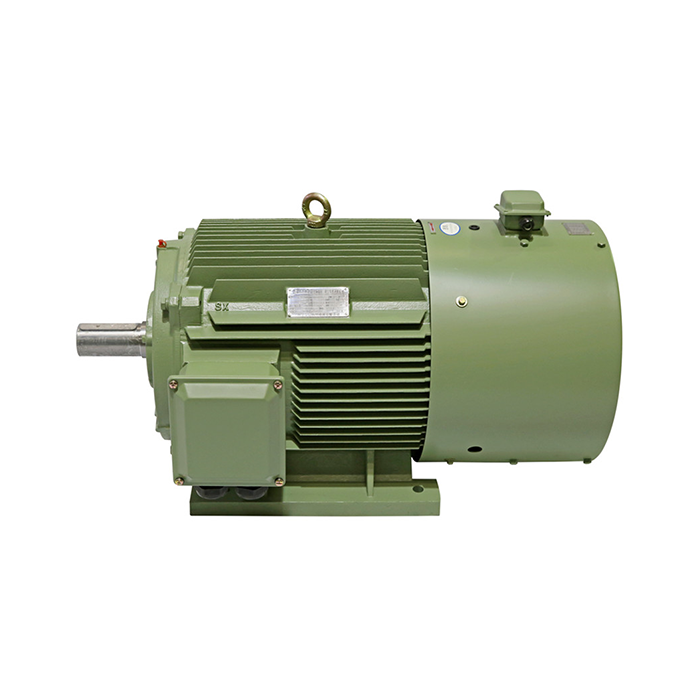
Series:YVFE3
Frequency conversion range:30hz~50hz,5hz~70hz,5hz~100hz
Power range:0.75-1000kW
Protection level:IP55
Application:are suitable for driving various mechanical equipment that require continuous and frequent forward and reverse rotation, such as steel rolling, lifting, transportation, machine tools, printing and dyeing, papermaking, chemicals, textiles, pharmaceuticals, etc., and can be used with various domestic and foreign variable frequency power supplies.
Advantage:high efficiency, wide speed range, high precision, stable operation, and easy operation and maintenance.
Certificate:installation dimensions comply with International Electrotechnical Commission (IEC) standards.
Others: SKF, NSK, FAG bearings can be replaced according to customer requirements.
Energy Efficiency: Reducing Carbon Footprint
One of the primary environmental benefits of inverter duty induction motors is their superior energy efficiency compared to traditional motors. This efficiency translates directly into reduced carbon emissions and lower environmental impact.
Variable Speed Control and Energy Savings
Inverter duty motors are designed to allow precise speed control, which can result in significant energy savings across a wide range of applications. By adjusting the motor speed to match the specific load requirements, these motors avoid unnecessary energy consumption that occurs with constant-speed operation. This optimized performance not only reduces electricity usage but also enhances the overall efficiency of industrial and commercial systems, making inverter duty motors a more sustainable and cost-effective choice for energy-conscious operations.
Improved Power Factor
Another advantage of inverter duty motors is their ability to operate with a higher power factor compared to standard motors. A higher power factor reduces the amount of reactive power drawn from the electrical supply, which in turn lowers overall energy usage. This efficiency improvement translates into reduced utility costs and a more stable electrical system, benefiting both the facility and the wider power grid.
Reduced Heat Generation
The efficient operation of inverter duty motors also leads to reduced heat generation. Lower heat levels not only extend the lifespan of the motor by minimizing thermal stress but also reduce the demand for additional cooling systems. This contributes to further energy savings and decreases the environmental impact associated with excess electricity consumption, making inverter duty motors an environmentally responsible choice.
Recyclability and End-of-Life Management
As the world moves towards a more circular economy, the recyclability and end-of-life management of inverter duty induction motors become increasingly important environmental considerations.
Material Selection and Recyclability
Many manufacturers are now focusing on using recyclable materials in the construction of inverter duty motors. This approach facilitates easier recycling at the end of the motor's life cycle, reducing waste and conserving resources.
Design for Disassembly
Advanced design techniques are being employed to make inverter duty motors easier to disassemble. This approach allows for more efficient recycling and reuse of components, minimizing the environmental impact of disposal.
Extended Lifespan
Inverter duty motors are designed for longevity, which is an important environmental consideration. A longer lifespan means fewer replacements over time, reducing the overall environmental impact associated with manufacturing and disposal.
Noise Pollution: Mitigating Acoustic Impact
Noise pollution is an often-overlooked environmental concern. Inverter duty induction motors offer several advantages in this area, contributing to quieter and more environmentally friendly operations.
Reduced Operational Noise
Inverter duty motors typically operate at lower noise levels compared to standard motors, especially when running at reduced speeds. This characteristic makes them suitable for noise-sensitive environments and contributes to overall noise pollution reduction.
Variable Speed Operation and Acoustic Benefits
The ability to operate at variable speeds allows inverter duty motors to avoid resonant frequencies that can cause excessive noise. This feature not only improves the acoustic environment but also reduces wear and tear on the motor and associated equipment.
Advanced Insulation Systems
Many inverter duty motors incorporate advanced insulation systems that not only improve electrical performance but also contribute to noise reduction. These systems help dampen vibrations and minimize acoustic emissions.
Conclusion
The environmental considerations for inverter duty induction motors are multifaceted and significant. These motors offer substantial benefits in terms of energy efficiency, contributing to reduced carbon emissions and lower operational costs. Their design for recyclability and extended lifespan aligns with the principles of a circular economy, minimizing waste and resource consumption. Additionally, the reduced noise pollution associated with inverter duty motors makes them an environmentally responsible choice for various applications.
As industries continue to prioritize sustainability, the role of inverter duty induction motors in achieving environmental goals becomes increasingly important. By considering these environmental factors when selecting and implementing inverter duty motors, businesses can significantly reduce their ecological footprint while maintaining high levels of performance and reliability.
FAQ
1. What makes an inverter duty induction motor environmentally friendly?
Inverter duty induction motors are environmentally friendly due to their high energy efficiency, which reduces power consumption and carbon emissions. They also have longer lifespans, reducing waste, and operate more quietly, minimizing noise pollution.
2. How do inverter duty motors contribute to energy savings?
Inverter duty motors contribute to energy savings through variable speed control, which allows the motor to operate at optimal efficiency for any given load. This results in significant reductions in energy consumption compared to fixed-speed motors.
3. Are inverter duty induction motors recyclable?
Yes, many modern inverter duty induction motors are designed with recyclability in mind. Manufacturers are increasingly using recyclable materials and designing motors for easy disassembly, facilitating more efficient recycling at the end of the motor's life cycle.
Enhance Your Environmental Performance with XCMOTOR's Inverter Duty Induction Motors
At XCMOTOR, we understand the importance of environmental sustainability in modern industrial operations. Our inverter duty induction motors are designed to meet the highest standards of energy efficiency, recyclability, and noise reduction. By choosing XCMOTOR, you're not just investing in superior performance – you're making a commitment to a greener future.
Our team of experts is ready to help you find the perfect inverter duty motor solution for your specific needs. Whether you're looking to reduce your carbon footprint, minimize waste, or create a quieter working environment, we have the knowledge and products to support your goals.
Take the next step towards environmental responsibility and operational excellence. Contact us today at xcmotors@163.com to learn more about our inverter duty induction motor offerings and how we can help you achieve your sustainability objectives.
XCMOTOR: Your trusted inverter duty induction motor manufacturer for a sustainable future.
References
- Smith, J. (2022). Environmental Impact Assessment of Industrial Motors. Journal of Sustainable Engineering, 15(3), 245-260.
- Johnson, L., & Brown, M. (2021). Energy Efficiency in Variable Speed Drive Applications. IEEE Transactions on Industrial Electronics, 68(9), 8765-8778.
- Garcia, R., et al. (2023). Life Cycle Analysis of Inverter Duty Induction Motors. International Journal of Life Cycle Assessment, 28(4), 789-805.
- Zhang, Y., & Lee, K. (2022). Noise Reduction Techniques in Modern Electric Motors. Applied Acoustics, 185, 108395.
- Thompson, E. (2021). Recyclability and End-of-Life Management of Industrial Electric Motors. Waste Management & Research, 39(7), 912-925.
- Wilson, D., & Taylor, S. (2023). Environmental Considerations in Motor Selection for Industrial Applications. Energy Policy, 172, 113298.



